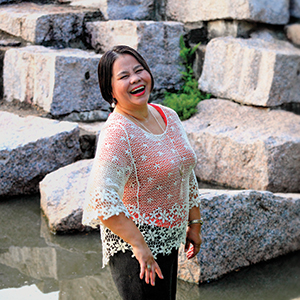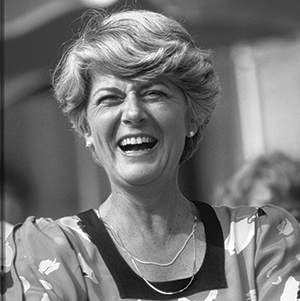-
Colorectal Cancer: A Troubling Trend
More people are being diagnosed with colorectal cancer before 50, the recommended age to start screening.
by Charlotte Huff
-
Survivor Profile
Stop the SilenceCancer survivor Cherry Sloan-Medrano works to encourage a conversation about cancer among Asians in the U.S.
by Jenny Song
-
Get Involved
The Power of HelpingTwelve-year-old cancer survivor Peter Zucca starts a foundation to give back to kids with cancer.
by Leigh Labrie
-
Yesterday & Today
Taking Her PlaceGeraldine Ferraro, the first woman nominated for vice president on a major-party ticket, used her political prowess to advocate for women's equality. In 1998, she was diagnosed with multiple myeloma.
by Sharlene George
-
Forward Look
Childhood Cancer Survivors at Risk for Hormone DeficienciesNew study highlights importance of survivorship care.
by Sharon Reynolds
-
Survivor Profile
A Desire to HelpSince P.J. Lukac's glioblastoma diagnosis, the young pediatrician has worked hard to spread awareness and understanding of the disease.
by Stephen Ornes
-
Preserving the Future
Young adults undergoing cancer treatment who may want to have children should talk with their doctors about ways to preserve their fertility.
by Marci A. Landsmann
-
Forward Look
Cost of Breast Cancer Treatment Affects AdherenceDrug for early-stage cancer must be taken for many years to be effective.
by Kendall K. Morgan
-
The DCIS Dilemma
Ductal carcinoma in situ is the fourth most common cancer diagnosis in women. Some say it's not "really" cancer. But you wouldn't know that based on how it is treated.
by Sue Rochman
-
Yesterday & Today
The Voice of Lamb ChopVentriloquist Shari Lewis and her sidekick, a white wool puppet named Lamb Chop, won the hearts of generations of children who tuned in to her television shows.
by Jocelyn Selim
Cancer Talk
Lessons From 20 Years Living With Cancer
Multiple myeloma survivor Jonathan Gluck reflects on uncertainty, and the scientific progress that has kept him living with cancer for more than two decades.
by Eric Fitzsimmons
The Enduring Importance of Cancer Disparities ResearchOpening session from AACR conference highlights how perseverance and adversity have informed cancer disparities research over the years.
by Eric Fitzsimmons
Most Cancer Survivors Don’t Meet Healthy Diet GoalsDespite research linking fruits and vegetables to cancer survival, many people do not change their eating habits after diagnosis.
by Darlene Dobkowski
Many People Don’t Get Colonoscopy After Receiving Abnormal Blood TestsAbout half of people who receive abnormal results from colorectal cancer screening tests don’t follow up with a colonoscopy.
by Laura Gesualdi Gilmore















